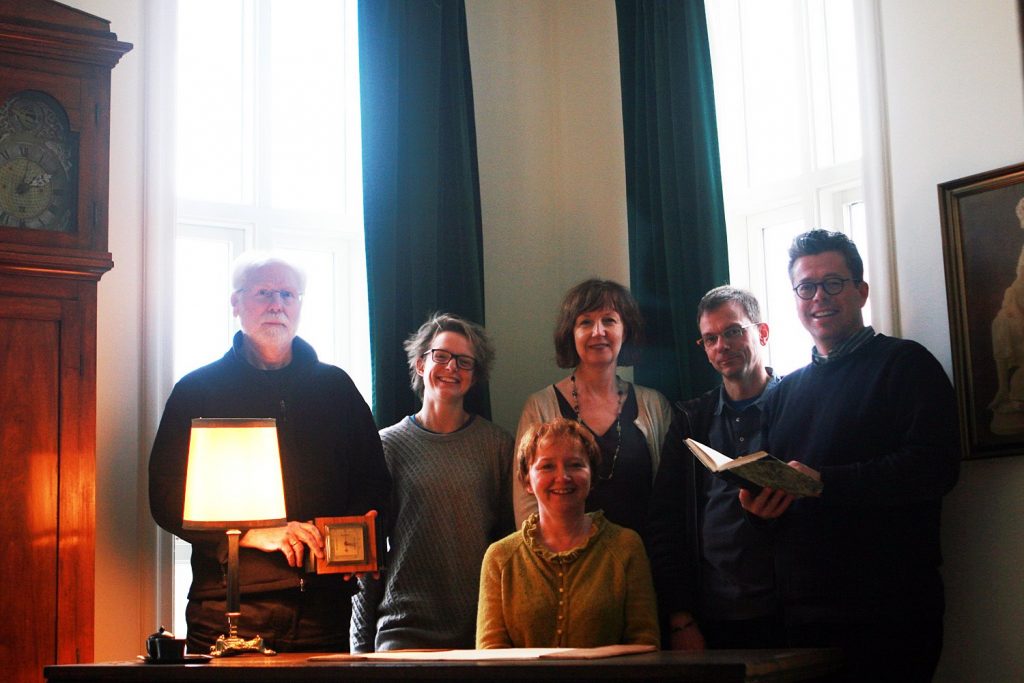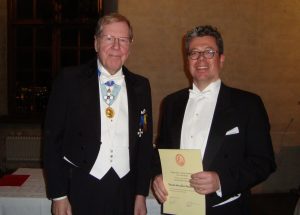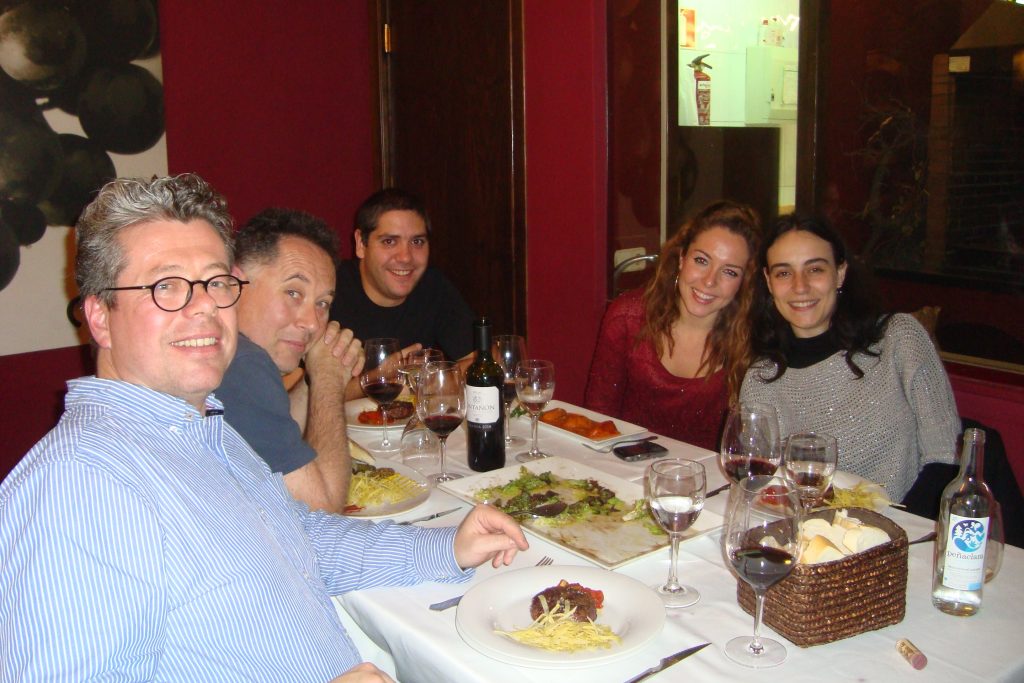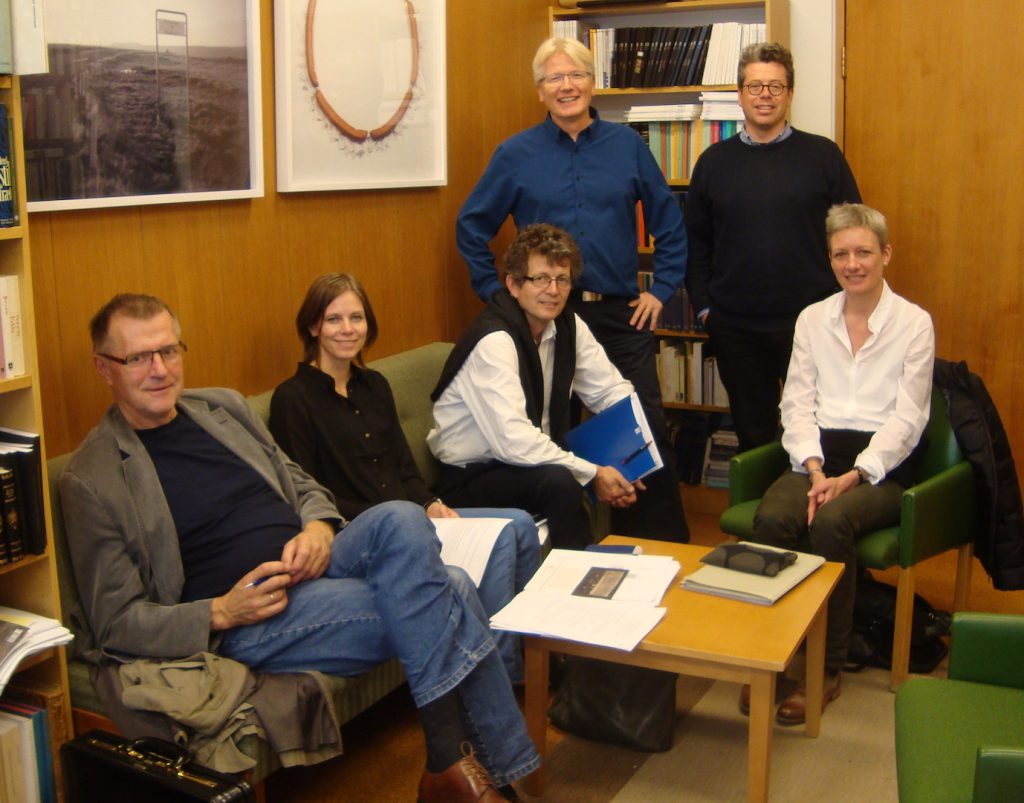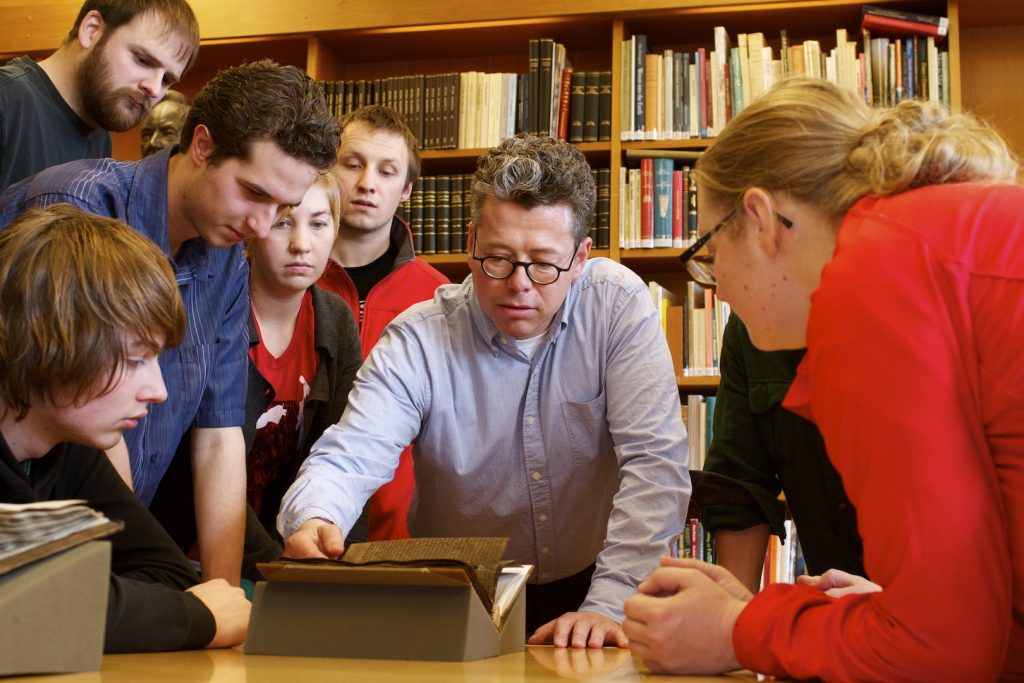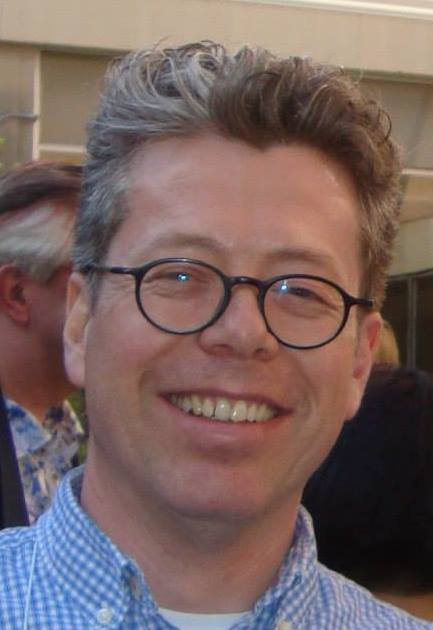The Dag Strömbäck Prize
On November 6, 2012, I received the Dag Strömbäck Prize for research in Icelandic and Gothic language history and on Old Norse manuscripts. The prize was awarded by the Royal Gustav Adolf Academy in Uppsala, Sweden. In the photo, I am with Professor Lennart Elmevik, president of the Royal Gustav Adolf Academy, in the Uppsala Palace.
See University of Iceland newsfeed.
VMN steering group
Viking and Medieval Norse Studies steering group meeting in Reykjavík on September 20, 2012: Terje Spurkland (University of Oslo), Pernille Hermann (Aarhus University), Gísli Sigurðsson (Árni Magnússon Institute for Icelandic Studies), Torfi H. Tulinius (University of Iceland), Haraldur Bernharðsson (University of Iceland), and Anne Mette Hansen (Copenhagen University).
Viking and Medieval Norse Studies
Viking and Medieval Norse Studies is a two-year master's program in Iceland and Scandinavia. Application deadline: February 1st. — See http://oldnorse.is/
Dialects of early Icelandic
 On April 12th, I delivered the talk "Dialects of early Icelandic" in the series Málstofan on Channel 1 (Rás 1) of the National Brodcasting Service (RÚV). The Icelandic language has undergone great many changes throughout its history. These changes did not spread throughout the entire community in one fell swoop. Instead, their spread did in many instances take several centuries. Inevitably this lead to some dialectal differences.
On April 12th, I delivered the talk "Dialects of early Icelandic" in the series Málstofan on Channel 1 (Rás 1) of the National Brodcasting Service (RÚV). The Icelandic language has undergone great many changes throughout its history. These changes did not spread throughout the entire community in one fell swoop. Instead, their spread did in many instances take several centuries. Inevitably this lead to some dialectal differences.
You can listen to the talk on the Málstofa web (in Icelandic).
A doctoral dissertation on the manuscript Morkinskinna, GKS 1009 fol.
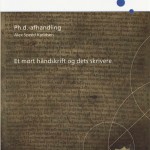 On March 4th, I was an opponent at Alex Speed Kjeldsen's doctoral defense at the University of Copenhagen along with Prof. Odd Einar Haugen of Bergen University and Bent Jørgensen of Copenhagen University. The dissertation, which is titled "Et mørt håndskrift og dets skrivere. Filologiske studier i kongesagahåndskriftet Morkinskinna", is a thorough investigation of an Icelandic manuscript from the second half of the 13th century, usually known as Morkinskinna (which in fact means 'the rotten manuscript', referring to its rather poor state). The dissertation is a very valuable contribution to the study of Icelandic 13th-century language and script.
On March 4th, I was an opponent at Alex Speed Kjeldsen's doctoral defense at the University of Copenhagen along with Prof. Odd Einar Haugen of Bergen University and Bent Jørgensen of Copenhagen University. The dissertation, which is titled "Et mørt håndskrift og dets skrivere. Filologiske studier i kongesagahåndskriftet Morkinskinna", is a thorough investigation of an Icelandic manuscript from the second half of the 13th century, usually known as Morkinskinna (which in fact means 'the rotten manuscript', referring to its rather poor state). The dissertation is a very valuable contribution to the study of Icelandic 13th-century language and script.
Language change and Old Icelandic sources of linguistic evidence
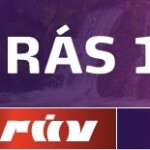 On February 8th, I delivered the talk "Language change and Old Icelandic sources of linguistic evidence" in the series Málstofan on Channel 1 (Rás 1) of the National Brodcasting Service (RÚV). In the talk, I discussed the sources available for investigating earlier stages of Icelandic and language changes that surface in Icelandic manuscripts written in the 14th century. You can listen to the talk on the Málstofa web (in Icelandic).
On February 8th, I delivered the talk "Language change and Old Icelandic sources of linguistic evidence" in the series Málstofan on Channel 1 (Rás 1) of the National Brodcasting Service (RÚV). In the talk, I discussed the sources available for investigating earlier stages of Icelandic and language changes that surface in Icelandic manuscripts written in the 14th century. You can listen to the talk on the Málstofa web (in Icelandic).
